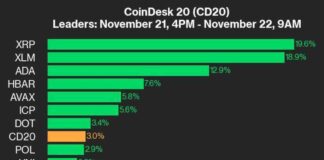A federal court in the US has made a significant decision by striking down the Securities and Exchange Commission’s (SEC) controversial dealer rule, which was seen as a setback for the agency’s efforts to regulate the crypto sector. The court ruled that the SEC had exceeded its authority, invalidating the rule as a violation of the Exchange Act.
The ruling came after the Blockchain Association and the Crypto Freedom Alliance of Texas challenged the rule in court, arguing that it expanded the SEC’s jurisdiction unlawfully and created uncertainty for digital asset innovators. The court agreed with this assessment, stating that the SEC’s definition of “dealer” was not in line with the law’s text, history, and structure.
Kristen Smith, CEO of the Blockchain Association, hailed the court’s decision as a victory for the digital asset industry, noting that the dealer rule was an attempt to expand the SEC’s authority illegally and hinder crypto innovation. Marisa Coppel, head of legal at the Blockchain Association, emphasized the importance of adhering to statutory boundaries, even if litigation is necessary to defend the industry.
Critics of the SEC’s dealer rule argued that it would place heavy compliance burdens on blockchain developers and small businesses, ultimately stifling innovation in the rapidly growing sector. The involvement of CFAT, a Texas-based trade group, in the legal battle highlighted the concerns over regulatory overreach by the SEC.
The lawsuit filed in April represented a significant pushback against what many in the digital asset community perceive as the SEC’s aggressive regulatory agenda. Industry leaders have been vocal in criticizing the agency’s enforcement actions and ambiguous rules, which they believe impede innovation.
The court’s decision is likely to have broad implications for digital asset regulation, signaling increased judicial scrutiny of the SEC’s policies. Advocates hope that this ruling will encourage lawmakers and regulators to pursue clearer and more balanced policies for the sector.
The Blockchain Association, a coalition of crypto companies, investors, and projects, advocates for innovation-friendly regulations, while CFAT focuses on promoting digital asset policy in Texas to highlight the economic and technological benefits of blockchain development. This ruling marks a significant turning point in the ongoing debate over regulatory oversight in the crypto sector.














